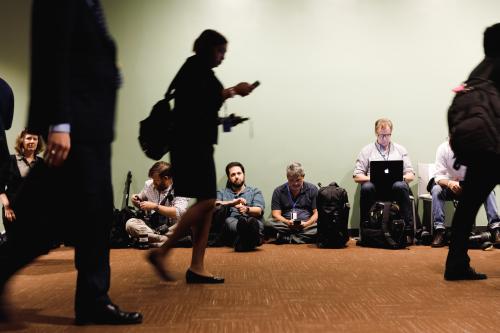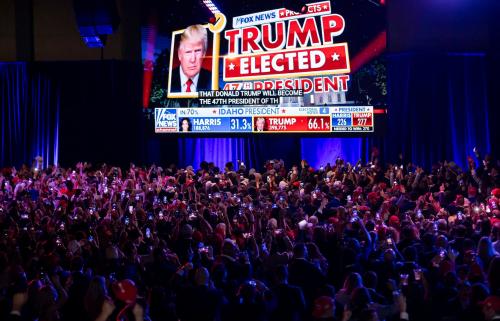Thinktankdom is a field in which research, analysis and commentary have shaped everything from the Marshall Plan to the Iraq War debate to current battles over what weapons systems should be bought. But for all the influence these analysts (and talking heads) wield, it is also a field that lacks a universal code of ethics, ombudsmen to hold people accountable or a professional association to regulate it. Even more, it is filled with people who are happy to speak about everything under the sun — that is, except their own field and the part that money plays in it. Indeed, many fellow think tankers saw it as stunning that I recently wrote a study on the think tank industry and some of the interesting aspects that result from its varied funding, despite the fact that it is a major industry in Washington, with more than 600 of these institutions in the city.
Recently, some media outlets have begun to ask about the prominent role that certain defense think tankers are trying to play in debates over such issues as the tanker-aircraft buy and the looming defense cuts, and the network of connections they often have to manufacturers of these very same systems. When people do think about this issue of money and influence in thinktankdom, they often look to the institutional funding. That is, the goals of a think tank’s donors and, even more so, the percentage of overall funding any single donor has, can be a huge determinant at some think tanks of not only what questions are asked by the staff in their writing and commentary, but also the very answers of that “research.” Otherwise, it’s sheer coincidence that organizations funded solely by defense firms always conclude that the defense budget should be expanded, while those funded by peacenik foundations think the Pentagon budget should be cut. This line from funding to conclusions is efficient in one way: It makes it easy to figure out what such analysts will say before they enter the room. Indeed, some journalists even like it because they know the tenor of the quote from an analyst before they call for an interview. Of course, it raises the question of why even go through the motions in the first place?
But at least most of these think tanks are forced by their nonprofit status to reveal who their funders are in their yearly reports. Left out of the discussion, though, is the profit motive that is sometimes also at play at the personal level. It’s a dirty little secret, but many think tankers, especially in the defense realm, also privately engage in “consulting” contracts and side businesses that directly link to their work, frequently with the same firms whose products or interests they then comment on in the public sphere.
Read the full article at armedforcesjournal.com »
The Brookings Institution is committed to quality, independence, and impact.
We are supported by a diverse array of funders. In line with our values and policies, each Brookings publication represents the sole views of its author(s).



Commentary
Op-edDo Quote Me: Washington’s Think Tankers Can Play a Double Game through the Media
February 9, 2011